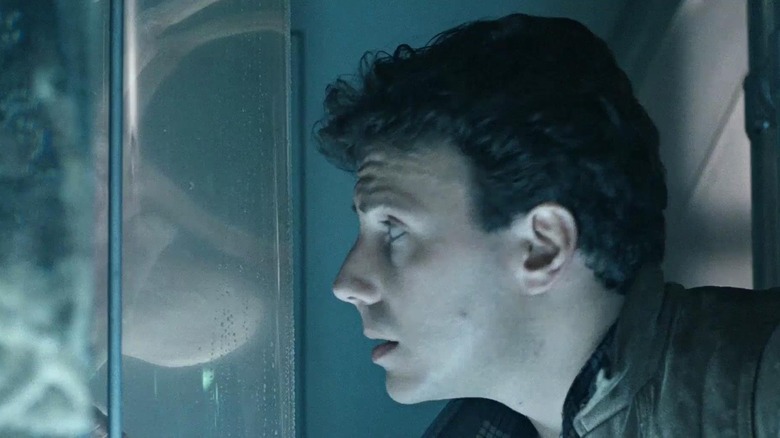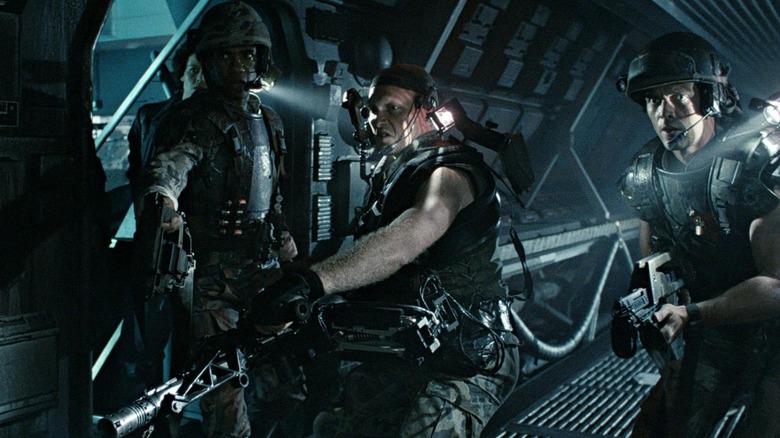Paul Reiser Knew Just From The Script That James Cameron's Aliens Would Be A Hit
Among the great movie villains – the likes of Biff Tannen, Hans Gruber, Nurse Ratched, your odd slasher icon — Carter J. Burke of "Aliens" is not the most intimidating, but certainly one of the slimiest. Played by Paul Reiser (recently seen in "Stranger Things"), Burke is the weasel-esque company man representing the interests of the Weyland-Yutani Corporation. Those who have seen Ridley Scott's 1979 predecessor "Alien" know the company to be ruthless; Special Order 937 seen in the film sets the highest priority on bringing the organism of the title back for analysis, while the crew battling the creature was deemed "expendable." Not much has changed in "Aliens," which sees the company send in Colonial Marines along with "Alien" survivor Ellen Ripley (Sigourney Weaver) to an exoplanet where a terraforming colony has lost contact.
With screen credits such as "Diner" and the first "Beverly Hills Cop" movie to his name by 1986, Reiser was optimistic that James Cameron's sequel was going to be a success. He told CBR:
That was a rare case where I felt confident going in. I went, "This is a huge movie." I had seen 'Terminator,' and I knew James Cameron's genius. I read the script, and I haven't had this experience since, where you are out of breath reading a paper. "Ohhhh...." It was written almost comic book style, with very short sentences and, "BAM," "SLAM,' and written-out sound effects. I was reading it going, "This is unbelievable, and Sigourney Weaver... She's great. 'Alien,' I loved the first movie." That was not a risk. The risk was on their part, letting the likes of me come into the pool.
'I work for the company. But don't let that fool you, I'm really an okay guy.'
Burke, you may recall, introduces himself to Ripley as an employee of Weyland-Yutani, and jokes with her not to hold that against him. What can be held against him is the way he conducts himself for the rest of the movie; it starts with arguing for the "substantial dollar value" of company property over human lives, progresses to intentionally endangering human lives, and ends with some brief but satisfying comeuppance for his callousness. Reiser recalls the gravity of his casting to CBR:
My goal was, "If the movie doesn't come to a grinding halt when you come on screen, it's a victory." When I watched it, I went, "Nobody's throwing stuff, or, if they are, it's because they hated my character." I knew it was great, and when I saw it, I was just blown away. "Oh my gosh. I can't believe I am in something this good." That's the other thing I found out in these conventions is how many people watch it still. It influenced so many movies. So many movies stood on its shoulders. People will still throw that at me. "Oh boy, you seem like a nice guy, but boy, I hated you. You were just a bad guy." "You say bad guy... I say misunderstood."
It's routine for actors to find something relatable in the characters they play, even the sleazy ones, so interpreting Burke as "misunderstood" makes some sense. But don't let the bright blue eyes fool you; Burke would be right at home busting up a labor union if he had been a company suit today.

